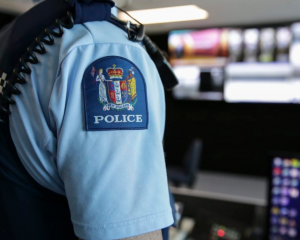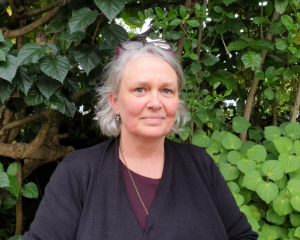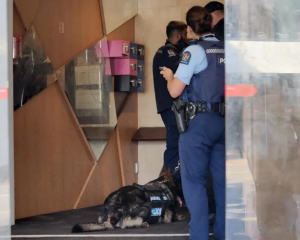Top-secret police intelligence documents with details about confidential informants were accidentally sent by our elite organised crime-fighting agency to the criminals they were investigating.
The stunning bungle saw the information copied and widely circulated among gang and methamphetamine-producing circles and led to police taking emergency steps to protect those exposed by the blunder.
Last night, Assistant Commissioner Malcolm Burgess said the information had been mistakenly included in material sent to a lawyer acting for someone arrested in an investigation by the Organised and Financial Crime Agency of NZ (Ofcanz).
"Police deeply regret this mistake, which was the result of human error. Steps were taken to recover the information as soon as police were aware of the error.
"However, by this point it had been more widely circulated. Police also took other appropriate measures needed to prevent harm to any person arising from the mistake."
Mr Burgess said the mistake had led to changes in policy and training. He would not comment on the content of the information because it was so sensitive.
The Ofcanz material was obtained by the Weekend Herald from a source close to the criminal world. We had it reviewed by three senior lawyers, who described it as an extraordinary disclosure of sensitive material.
The file is focused on an Ofcanz operation targeting a gang involved in the methamphetamine trade. The Weekend Herald has chosen to not reveal the operation or the names of those involved in it.
We were told the file was being distributed in criminal circles to allow people to see whether any of the details in the documents exposed their own illegal operations to risk from police.
It includes lists of people being watched by police, mobile phone numbers covered by interception orders, car registration details and a raft of other information now being studied by criminals.
The information appears to be in three forms - direct intelligence from informants, intelligence gleaned from surveillance, and court applications by police for access to bank, vehicle registration and phone records.
The file has information which would identify confidential informants, using the acronym CHIS, which is police shorthand for "covert human intelligence source".
One entry gives a date and a named individual, saying the person was "hanging around CHIS again".
A "CHIS" was also identified on a particular date and place as dropping off a vehicle to a named individual. The acronym also appears in the document next to a series of names and associated numbers - possibly the key that matches identities to their "handles".
The claims of sources inside the police were also recorded: "Working for [station name] police. They definitely have someone on the inside. [Name] is always getting info from this person."
The easy access to firearms is also revealed. The file talks of a gang member taking an AK47 as part-payment for drugs and an Uzi - a submachinegun of Israeli manufacture.
It also includes extensive discussion of methamphetamine production. "[Name] showed extraction fluid, pans, glassware for finishing off in the house."
It also reflects the tense atmosphere in a house where methamphetamine was being produced. "[Name] is up and down & in foul moods. Things are heating up in the house. [Name] hasn't slept in days."
The toxic nature of the chemicals is revealed in one report: "Later that night the air left a bitter taste in my mouth & stung my eyes. Seen all the equipment. Cooking large & spending up."
It shows which mobile telephones have had "interception authority" - the legal right to listen in on conversations - and the bank accounts from which police had sought and received transaction details.
Money was a focus for the inquiry, with police recording details of the wealth earned by those making methamphetamine - "they have a massive pile of money" - and the pitfalls of hiding it. "[Name] is fuming because some money he has stashed away was eaten by rats and mice."
It shows an apparent offer by the alleged ringleader of $10,000 for a woman known in the criminal scene "to be kidnapped and brought to him". Last night, police confirmed there were no concerns for her safety, although she has had warrants out for her arrest on methamphetamine supply charges since at least April.
Criminal Bar Association president Tony Bouchier - a former police senior sergeant who worked as an undercover drug detective - said he would expect a high-level inquiry to be launched immediately.
He said the information was not what was disclosed by police during the court process. "It is very high level intelligence information. It's really concerning."
He said it would raise concerns informants would be identified. "It exposes the whole intelligence-gathering system of the police. If this has come from Ofcanz, I would have thought they would have the highest level of security possible."
Paul Davison, QC - who defended the Switched On Gardener stores which were investigated as an organised crime group - said he had never seen anything resembling the material when acting for those facing charges before the courts.
"Any documents or information that might disclose the operational activities of the police, that would prejudice the police ability to gather information in the future, is protected from the disclosure regime."
Mr Davison said it appeared to be a composite of a variety of intelligence streams obtained by police, including from informants.
"They have to protect these people for very good reason. You would expect the only people who would have access to it is the officers who are controlling the informant or the officers to whom they report."
Barrister Ron Mansfield, who has defended a number of cases investigated by Ofcanz, also noted the nature of the material bringing together different streams of intelligence.
"There's no way we would get disclosure of this. It could lead to destruction of evidence if people think they have a connection to these people or phone numbers. I don't think [the police] would be very happy at all."
- by David Fisher, NZ Herald












